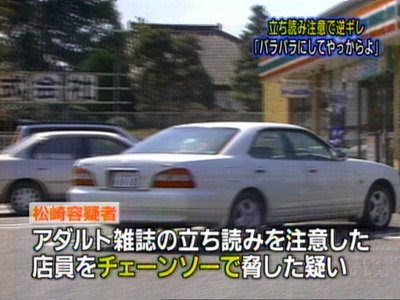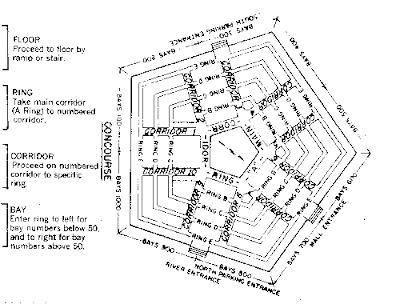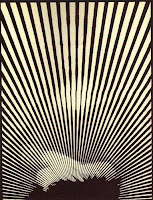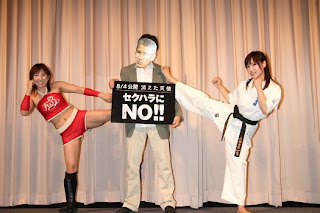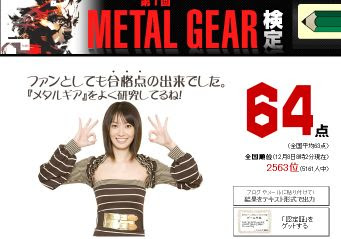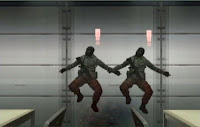cita del trascendentalista idiota Stanislav Grof:
Teniendo presentes estas consideraciones, creamos el término
“emergencia espiritual”. Implica un juego de palabras: la palabra emergencia,
sugiere una súbita crisis, proviene del latín emergere (surgir, elevarse,
aparecer). Esta palabra indica así una situación precaria, pero también la
posibilidad de elevarse a un estado más alto del ser. El pictograma chino para
crisis representa perfectamente esta idea: está compuesto de dos signos
primarios, uno de los cuales significa “peligro”, mientras que el Otro significa
“oportunidad”.
Reconocer la naturaleza dual de la emergencia espiritual —peligro y
oportunidad— tiene importantes consecuencias teóricas y prácticas. Si se las
comprende correctamente y se las trata como un estadio difícil en un proceso
natural de desarrollo, las emergencias espirituales pueden conducir a una
curación a nivel emocional y psicosomático, a cambios profundos y positivos de
la personalidad y a la solución de muchos de los problemas de la vida.
Contesta el racionalista idiota
Victor H. Mair: (pinyin.info)The explication of the Chinese word for crisis as made up of two components signifying danger and opportunity is due partly to wishful thinking, but mainly to a fundamental misunderstanding about how terms are formed in Mandarin and other Sinitic languages. For example, one of the most popular websites centered on this mistaken notion about the Chinese word for crisis explains: "The top part of the Chinese Ideogram for 'Crisis' is the symbol for 'Danger': The bottom symbol represents 'Opportunity'." Among the most egregious of the radical errors in this statement is the use of the exotic term "Ideogram" to refer to Chinese characters. Linguists and writing theorists avoid "ideogram" as a descriptive referent for hanzi (Mandarin) / kanji (Japanese) / hanja (Korean) because only an exceedingly small proportion of them actually convey ideas directly through their shapes. (For similar reasons, the same caveat holds for another frequently encountered label, pictogram.) It is far better to refer to the hanzi / kanji / hanja as logographs, sinographs, hanograms, tetragraphs (from their square shapes [i.e., as fangkuaizi]), morphosyllabographs, etc., or -- since most of those renditions may strike the average reader as unduly arcane or clunky -- simply as characters.
The second misconception in this formulation is that the author seems to take the Chinese word for crisis as a single graph, referring to it as "the Chinese Ideogram for 'crisis'." Like most Mandarin words, that for "crisis" (wēijī) consists of two syllables that are written with two separate characters, wēi and jī.
Chinese character wei
危Chinese character wēi
Chinese character ji1 in simplified form
机Chinese character jī (in simplified form)
Chinese character ji1 -- in traditional form
機The third, and fatal, misapprehension is the author's definition of jī as "opportunity." While it is true that wēijī does indeed mean "crisis" and that the wēi syllable of wēijī does convey the notion of "danger," the jī syllable of wēijī most definitely does not signify "opportunity." Webster's Ninth New Collegiate Dictionary defines "opportunity" as:
1. a favorable juncture of circumstances;
2. a good chance for advancement or progress.
While that may be what our Pollyanaish advocates of "crisis" as "danger" plus "opportunity" desire jī to signify, it means something altogether different.
The jī of wēijī, in fact, means something like "incipient moment; crucial point (when something begins or changes)." Thus, a wēijī is indeed a genuine crisis, a dangerous moment, a time when things start to go awry. A wēijī indicates a perilous situation when one should be especially wary. It is not a juncture when one goes looking for advantages and benefits. In a crisis, one wants above all to save one's skin and neck! Any would-be guru who advocates opportunism in the face of crisis should be run out of town on a rail, for his / her advice will only compound the danger of the crisis.
For those who have staked their hopes and careers on the CRISIS = DANGER + OPPORTUNITY formula and are loath to abandon their fervent belief in jī as signifying "opportunity," it is essential to list some of the primary meanings of the graph in question. Aside from the notion of "incipient moment" or "crucial point" discussed above, the graph for jī by itself indicates "quick-witted(ness); resourceful(ness)" and "machine; device." In combination with other graphs, however, jī can acquire hundreds of secondary meanings. It is absolutely crucial to observe that jī possesses these secondary meanings only in the multisyllabic terms into which it enters. To be specific in the matter under investigation, jī added to huì ("occasion") creates the Mandarin word for "opportunity" (jīhuì), but by itself jī does not mean "opportunity."
A wēijī in Chinese is every bit as fearsome as a crisis in English. A jīhuì in Chinese is just as welcome as an opportunity to most folks in America. To confuse a wēijī with a jīhuì is as foolish as to insist that a crisis is the best time to go looking for benefits.
If one wishes to wax philosophical about the jī of wēijī, one might elaborate upon it as the dynamic of a situation's unfolding, when many elements are at play. In this sense, jī is neutral. This jī can either turn out for better or for worse, but -- when coupled with wēi -- the possibility of a highly undesirable outcome (whether in life, disease, finance, or war) is uppermost in the mind of the person who invokes this potent term.
For those who are still mystified by the morphological (i.e., word-building) procedures of Sinitic languages, it might be helpful to provide a parallel case from English. An airplane is a machine that has the capability of flying through the air, but that does not imply that "air" by itself means airplane or that "plane" alone originally signified airplane. (The word "plane" has only come to mean "airplane" when it functions as a shortened form of the latter word.) The first element of the word airplane, like the first element of wēijī, presents no real problems: it is the stuff that makes up our earth's atmosphere. The second element, however, like the second element of wēijī, is much trickier. There are at least half a dozen different monosyllabic words in English spelled "plane." While most of these words are derived from a Latin root meaning "flat" or "level," they each convey quite different meanings. The "plane" of "airplane" is actually cognate with the word "planet," which derives from a Greek word that means "wandering." A planet is a heavenly body that wanders through space, and an airplane is a machine that wanders through the air. As Gertrude Stein might have said, "An airplane is an airplane is an airplane." Neither "air" nor "plane" means "airplane"; only "airplane" means "airplane" - except when "plane" is being used as an abbreviation for "airplane"! Likewise, neither wēi nor jī means wēijī; only wēijī means wēijī. These are illustrations of the basic principles of word formation that are common to all languages. When etymological components enter into words, they take on the semantic coloring of their new environment and must be considered in that context.
If one wants to find a word containing the element jī that means "opportunity" (i.e., a favorable juncture of circumstances, or a good chance for advancement), one needs to look elsewhere than wēijī, which means precisely "crisis" (viz., a dangerous, critical moment). One might choose, for instance, zhuǎnjī ("turn" + "incipient moment" = "favorable turn; turn for the better"), liángjī ("excellent" + "incipient moment" = "opportunity" [!!]), or hǎo shíjī ("good" + "time" + "incipient moment" = "favorable opportunity").
Those who purvey the doctrine that the Chinese word for "crisis" is composed of elements meaning "danger" and "opportunity" are engaging in a type of muddled thinking that is a danger to society, for it lulls people into welcoming crises as unstable situations from which they can benefit. Adopting a feel-good attitude toward adversity may not be the most rational, realistic approach to its solution.
Finally, to those who would persist in disseminating the potentially perilous, fundamentally fallacious theory that "crisis" = "danger" + "opportunity," please don't blame it on Chinese!







